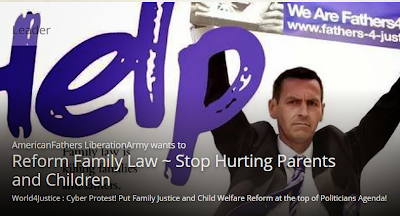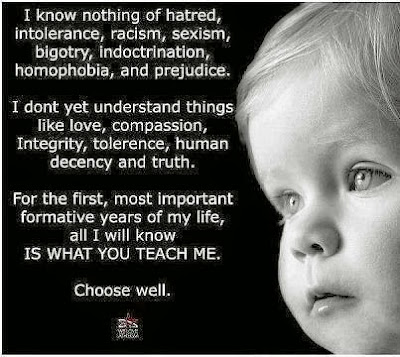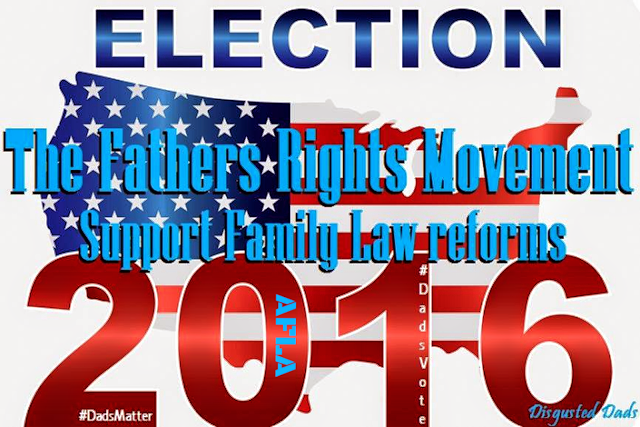The evolution of fatherhood research offers interesting insights into academics’ assumptions about how fathers contribute to their children’s well-being. These assumptions influence research agendas and, while sometimes being helpful, can also lead to misunderstanding fathers and their contributions. For instance, the scholarly study of fathers began with the Second World War when researchers made the assumption that father absence would lead young boys to become effeminate (Bach, 1946; McCord, McCord, & Thurber, 1962) or homosexual (see Pleck, 2007), with much of this research drawing on Freudian theory (Burton & Whiting, 1961). During this time and through much of the 1970s, aside from examining their presence or absence, fathers were not included in “parenting” research, which was primarily the study of the mother’s influence.
Then, in the 1980s, feminist thought began to influence the research field, and the assumptions about the father’s role expanded to include multiple aspects of parenting (see Lamb, 2000). Scholars began to categorize general “types” of father involvement (e.g., engagement, responsibility, accessibility) and study how these types influenced children (Lamb, Pleck, Charnov, & Levine, 1985, 1987). From this research grew a wealth of information on how a father’s involvement contributed to his children’s development (Lamb, 2010). Bolstered by these findings, fatherhood researchers increasingly argued that when studying child development, it was critical to study the father’s role.
At the same time, social movements arose that began to call into question two assumptions often underlying fatherhood research: 1) that what fathers do as parents is different from what mothers do and 2) that father involvement is essential for child well-being. Regarding the first assumption, it is certainly true that there is much overlap in what fathers and mothers do. Both mothers and fathers care for their children, express love, monitor, discipline, play, teach, etc. In fact, it is difficult to name a category of parenting tasks that fathers and mothers cannot both do. Jay Fagan and colleagues (Fagan, Day, Lamb, & Cabrera, 2014) found little research justification that “mothering” and “fathering” were different. They therefore conclude that there is justification for collapsing the terms “mothering” and “fathering” into “parenting.”
Regarding the second assumption about “essentiality,” Louise Silverstein and Carl Auerbach (1999) rightly challenged the notion that every child requires a father in order to successfully develop. Indeed, there are numerous examples of people who succeeded without being raised by a father. Barack Obama became President of the United States and Michael Phelps became the most decorated Olympic athlete in history, and both were raised primarily without a father.

While these two critiques are important and technically true, their usefulness is limited. Errors arise when these critiques are extended to assume that distinguishing between father and mother involvement is never necessary or that there are no children for whom father involvement is essential. These assumptions paint parenting in “broad strokes” and miss distinctions critical to understanding fathers. When “parenting” is defined broadly enough to apply equally to mothers and fathers across all times and places, the term becomes of little use.
One piece of evidence for this caution emerged in some recent research where we examined whether adolescents and parents had the same conceptual view of mother and father involvement (Dyer, in press; Dyer & Robbins, in preparation). We examined data from three separate datasets where mothers, fathers, and children in the U.S. filled out the same questions about the involvement of both the mother and father. Using the statistical method of measurement equivalence, we were able to explore whether individuals conceive of mother and father involvement in the same way.

Even after controlling for the number of hours parents worked, it was clear that both adolescents and parents conceptualize mother and father involvement differently. For example, we found that when adolescents think about a father “caring for” them and a mother “caring for” them, they are thinking about two conceptually different ideas of “caring.” Based on these findings, if researchers were to maintain a gender-neutral view of parenting, not only would they miss important conceptual distinctions, but the statistical models would be mis-specified and statistical estimates would be incorrect.

The role of father involvement in children’s lives is also obscured by the lack of multicultural research and the implicit assumption that findings about fathers in one place apply to fathers everywhere. Several decades after research on fatherhood began in earnest, it still suffers from Western bias and “U.S.-centrism” (Shwalb, Shwalb, & Lamb, 2013). In particular, as Ramadan Ahmed (2013) notes, there is a dearth of studies on fatherhood based in the “Arab World.” He found Egypt had the most research on fathers (67 studies) of any country in that region, then Saudi Arabia (11 studies), followed by Kuwait (5 studies). Even fewer studies on fatherhood, and sometimes no studies at all, exist for other countries in the Arab World. Further, the meager amount of fatherhood research on the Arab World that does exist is largely inaccessible to Western scholars. Eighty percent of the research Ahmed (2013) cites is in Arabic.
The majority of our fatherhood theory is built on the hundreds (even thousands) of studies on U.S. fathers. Given the measurement equivalence results with U.S. fathers and the lack of information on cultures whose gender roles are more distinct than in U.S. culture, we should not conclude that just because there is substantial overlap between mothers’ and fathers’ roles in Western countries, that there are no meaningful differences between the two.
In addition, researchers must acknowledge political influences on research. Silverstein and Auerbach (1999) describe their research agenda as focused on ensuring particular political outcomes. When research agendas are focused on such place- and time-bound issues, they often fail to address a much wider array of issues and draw conclusions that are far too broad.Even aside from these issues, conducting research on fathers is difficult (Mitchell et al., 2007) and without great care, it is easy to overlook significant aspects of fatherhood. Fathers are often less willing than mothers to participate in research, or have schedules that make it difficult for them to participate, or do not live with their children. Moreover, in some cultures, it is highly improper to ask a father about his young children. Nandita Chaudhary (2013), who studies fathers in India, provides an example of a father who, when asked a question about his young children, was quite taken aback. When he was able to “gather his wits,” he deflected the question. For reasons such as these, researchers often simply interview mothers about fathers, missing the fathers’ own voices. However, in order to understand them and their impact on kids, one must be willing to look closely at fathers, rather than examine them in the abstract.
Kathryn Edin and Timothy Nelson’s (2013) study of inner-city fathers provides a good illustration of the need to study fathers closely. They noted that many of the traditional, broad-stroke assumptions about these men were wrong. Yet it took months of research and hundreds of interviews for them to understand these fathers.

Questions about overlaps in mothering and fathering and the role fathers play in development are unavoidably difficult to answer, and can only be answered with much more scholarly work of similar scope. Despite its development over the past half century, fatherhood research is likely still in its infancy, and we should keep an open mind about mother/father differences as well as about fathers’ contributions.
W. Justin Dyer is an Assistant Professor at Brigham Young University teaching family and statistics courses. His research focuses on the contribution of fathers to their children’s well-being, including incarcerated fathers and fathers of children with disabilities.
References
Ahmed, R. A. (2013). The father’s role in the Arab world. In D. W. Shwalb, B. J. Shwalb, & M. E. Lamb (Eds.), Fathers in cultural context (pp. 122-147). New York: Routledge.
Bach, G. R. (1946). Father-fantasies and father-typing in father-separated children.Child Development, 17(1/2), 63-80. doi:10.2307/3181742
Burton, R. V., & Whiting, J. W. M. (1961). The absent father and cross-sex identity.Merrill-Palmer Quarterly of Behavior and Development, 7(2), 85-95. doi:10.2307/23082531
Chaudhary, N. (2013). The father’s role in the Indian family: A story that must be told. In D. W. Shwalb, B. J. Shwalb, & M. E. Lamb (Eds.), Fathers in cultural context (pp. 68-94). New York: Routledge.
Dyer, W. J. (in press). The vital role of measurement equivalence in family research.Journal of Family Theory & Review.
Dyer, W. J., & Robbins, N. (in preparation). Is fathering and mothering the same construct?
Edin, K., & Nelson, T. J. (2013). Doing the best I can: Fatherhood in the inner city. Berkeley: CA: University of California Press.
Fagan, J., Day, R., Lamb, M. E., & Cabrera, N. J. (2014). Should researchers conceptualize differently the dimensions of parenting for fathers and mothers?Journal of Family Theory & Review, 6(4), 390-405.
Lamb, M. E. (2000). The history of research on father involvement: An overview.Marriage and Family Review, 29(2/3), 23-42.
Lamb, M. E. (2010). How do fathers influence children’s development: Let me count the ways. In M. E. Lamb (Ed.), The role of the father in child development (5 ed., pp. 1-26). Hoboken, NJ: John Wiley & Sons.
Lamb, M. E., Pleck, J. H., Charnov, E. L., & Levine, J. A. (1985). Paternal behavior in humans. American Zoologist, 25, 883-894.
Lamb, M. E., Pleck, J. H., Charnov, E. L., & Levine, J. A. (1987). A biosocial perspective on paternal behavior and involvement. In J. B. Lancaster, J. Altman, & A. Rossi (Eds.),Parenting across the lifespan: Biosocial perspectives (pp. 11-42). New York: Academic Press.
McCord, J., McCord, W., & Thurber, E. (1962). Some effects of paternal absence on male children. The Journal of Abnormal and Social Psychology, 64(5), 361-369. doi:10.1037/h0045305
Mitchell, S. J., See, H. M., Tarkow, A., Cabrera, N., McFadden, K. E., & Shannon, J. D. (2007). Conducting studies with fathers: Challenges and opportunities. Applied Developmental Science, 11(4), 239.
Shwalb, D. W., Shwalb, B. J., & Lamb, M. E. (2013). Final thoughts, comparisons, and conclusions. In D. W. Shwalb, B. J. Shwalb, & M. E. Lamb (Eds.), Fathers in cultural context (pp. 385-399). New York: Routledge.
Silverstein, L. B., & Auerbach, C. F. (1999). Deconstructing the essential father.American Psychologist, 54(6), 397-407. doi:10.1037/0003-066X.54.6.397
A FATHER-DAUGHTER DANCE
 Thank you so much Ms Patton!! We wish you could have this presentation without the element/theme that involves Dads in prison.
Thank you so much Ms Patton!! We wish you could have this presentation without the element/theme that involves Dads in prison.
WHY IS THIS A CRITICAL ISSUE?
2 comments
Jason Montour -- i feel the same way and even if a woman takes that child from you puts you down in front of her than you realize your still a father but now your a father fighting for the rights of your childs mind and i used to put earphones on the belly and she would respond she used to yell for me when i came home from work i'm going to keep fighting for my baby till my baby is 18
Dragan Rivas -- It's a real sense of fatherly love for their child and if it is still a fetus in the womb of its mother. Of course, an important factor is the child that is born to a feeling of love and protection from their parents. child is God's blessing ii symbol of marital homes!




































HOW DID CHILDREN OF DIVORCE GET STUCK WITH THE VISITATION PLAN THAT AFFORDS THEM ACCESS TO THEIR NON-RESIDENTIAL PARENT ONLY ONE NIGHT DURING THE WEEK AND EVERY OTHER WEEK-END?
ReplyDeleteWhat is the research that supports such a schedule? Where is the data that confirms that such a plan is in the best interest of the child?
Well, reader, you can spend your time from now until eternity researching the literature, and YOU WILL NOT DISCOVER ANY SUPPORTING DATA for the typical visitation arrangement with the non-residential parent! The reality is that this arrangement is based solely on custom. And just like the short story, "The Lottery," in which the prizewinner is stoned to death, the message is that deeds and judgments are frequently arrived at based on nothing more than habit, fantasy, prejudice, and yes, on "junk science."
This family therapist upholds the importance of both parents playing an active and substantial role in their children's lives----especially in situations when the parents are apart. In order to support the goal for each parent to provide a meaningfully and considerable involvement in the lives of their children, I affirm that the resolution to custody requires an arrangement for joint legal custody and physical custody that maximizes the time with the non-residential----with the optimal arrangement being 50-50, whenever practical. It is my professional opinion that the customary visitation arrangement for non-residential parents to visit every other weekend and one night during the week is not sufficient to maintain a consequential relationship with their children. Although I have heard matrimonial attorneys, children's attorneys, and judges assert that the child needs the consistency of the same residence, I deem this assumption to be nonsense. I cannot be convinced that the consistency with one's bed trumps consistency with a parent!
Should the reader question how such an arrangement can be judiciously implemented which maximizes the child's time---even in a 50-50 arrangement----with the non-residential parent, I direct the reader to the book, Mom's House, Dads House, by the Isolina Ricci, PhD.
Indeed, the research that we do have supports the serious consequences to children when the father, who is generally the non-residential parent, does not play a meaningful role in lives of his children. The book, Fatherneed, (2000) by Dr. Kyle Pruitt, summarizes the research at Yale University about the importance of fathers to their children. And another post on this page summarizes an extensive list of other research.
Children of divorce or separation of their parents previously had each parent 100% of the time and obviously cannot have the same arrangement subsequent to their parents' separation. But it makes no sense to this family therapist that the result of parental separation is that the child is accorded only 20% time with one parent and 80% with the other. What rational person could possibly justify this?